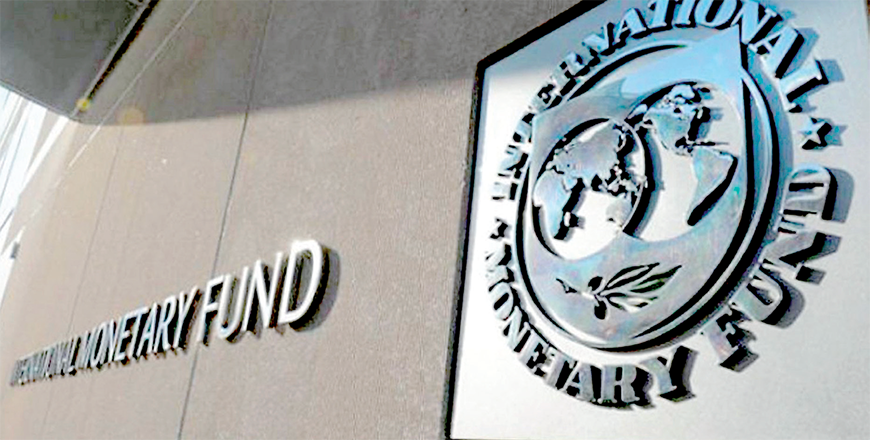You are here
WB approves $700m programmes for investment in Kingdom’s Human Capital
By JT - Jul 02,2024 - Last updated at Jul 02,2024

Petra Photo
AMMAN — The World Bank Group (WB) Monday approved two new programmes worth $700 million aimed to strengthen human capital in Jordan through targeted investments in the fields of education, health and social aid, as well as enhance Jordanian families' capacity to withstand shocks, Jordan News Agency, Petra, reported.
The Human Capital Programme in Jordan, and the Modernising Education, Skills and Administrative Reforms (MASAR) Programme aims to advance sustainable and inclusive growth, enhance the quality of education, and provide youth with skills necessary for the future labour market, according to a statement by the WB on its website.
The WB noted that over the past years, Jordan’s capacity to withstand the increasing volatility in the region has been commendable and appreciated, but external shocks have affected economic growth and job creation, and limited the ability to address pressing social and economic challenges.
Given the fact that more than 66 per cent of Jordan's population is under the age of 30, the Kingdom has a unique opportunity to benefit from the demographic dividend to achieve development and growth, but there are still gaps in access to education, especially in the early childhood stage, and it is necessary to increase investments to improve the quality of education and promote and expand technical and vocational education and training, in order to enhance employment opportunities in the future, the statement said.
The high prevalence of risk factors, such as smoking and the increasing burden of non-communicable diseases, lead to increased morbidity, decreased productivity, and decreased participation in the labour market, it pointed out.
Despite the remarkable progress made by the Jordanian government in expanding the scope of social protection programmes across the Kingdom, especially government-supported programmes, such as the "Cash Transfer" programme, there are still wide gaps in the coverage of the social protection system, as one-third of Jordanian workers are not covered by the social security umbrella so far.
World Bank Country Director for the Middle East Department Jean-Christophe Carret stressed that for Jordan to achieve development ambitions, it must harness its greatest components, the human capital, especially youth and women, and that through increasing investment in education, health and social protection, the Kingdom can enhance the capacity of its economy to withstand shocks and include everyone. It also can empower young people, especially women and the most needy groups, to fully participate in advancing growth and development at the Kingdom level and benefit from them, he added.
The $300 million human capital programme in Jordan aims to support the governance and effectiveness of social sectors, to ensure better and more sustainable results for all Jordanians, and enhance resilience, including protecting families from the negative impact of climate change, the statement said.
This programme supports the delivery of results-oriented and cost-effective services, and focuses on continuing to strengthen governance and accountability in public spending across key sectors, namely: Education (the most important sector for providing Jordanian youth with the skills needed to achieve economic growth), and health (the sector responsible for a large proportion of arrears despite regular injections of funds), and social aid (as the cash transfer programme is among the most advanced and effective in reducing inequality and poverty rates).
The MASAR Programme of $400 million, including a $7 million grant from the "Global Concessional Financing Mechanism", aims to provide Jordanian children and youth with appropriate skills for the labour market and the ongoing economic transformation across the Kingdom.
The programme focuses on 3 main areas: Improve the transition from home to school, increase access to basic education, and enhance the transition from school to work, expand access to education and vocational and technical training that meets the needs of the labour market, as well as improve the efficiency of the education system and human resources management.
The MASAR programme includes a technical aid and capacity building component to support the government in its implementation, as well as the implementation of vital reforms, the statement added.
By 2029, the MASAR programme is expected to achieve major accomplishments, including enrolling an additional 25,000 students in the second grade of kindergarten, ensuring that 4,200 kindergarten school classrooms meet minimum quality standards, and enrolling 150,000 students in grades 1 to 3 In targeted programmes to improve basic skills, the statement said.
The MASAR programme also aims to graduate 50,000 students from accredited technical and vocational education and training programmes in priority sectors, and ensure that 70 per cent of teachers and school principals are appointed according to the civil service system through a new merit-based mechanism. The programme will also benefit refugees, and will contribute to the Jordanian response plan for the Syrian crisis 2024-2026, according to the World Bank statement.
The Human Capital and MASAR programmes in Jordan are fully consistent with the Kingdom’s reform priorities, as stated in the Economic Modernisation Vision and the Public Sector Modernisation Roadmap for the years 2023-2025, and give priority to human capital, in addition to supporting the implementation of the "Smart Jordan" programme, a very ambitious programmer, it said.
The MASAR programme is also consistent with the ongoing support provided by the World Bank to reform the education sector and the public sector in Jordan. The programme builds on previous achievements and aims to establish a more efficient, comprehensive and responsive educational system, it said.
Related Articles
AMMAN — Luminus Group and the French National Association for Adult Vocational Training (AFPA) on Wednesday signed a memorandum of understan
AMMAN — The World Bank disbursed approximately $554 million to four projects it implemented with the Jordanian government for the fiscal yea

















